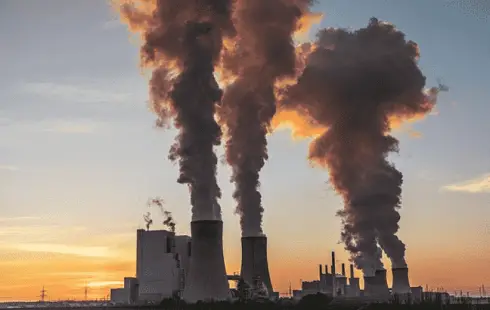
Fully Funded Scholarship Opportunity at the Bavarian International School for 2026-27
Section: News
 Consumers and companies in the EU will have to pay more frequently for carbon dioxide (CO?) emissions in the future. Negotiators from the EU Parliament and the states agreed on a reform of EU emissions trading early Sunday morning, according to the Czech Council presidency. This is intended to make the most important instrument of European climate protection policy much more powerful. In addition, a new climate social fund is to cushion the consequences of the energy transition for consumers. The agreement still needs to be confirmed by the EU Parliament and the states, but that is considered a formality.
Consumers and companies in the EU will have to pay more frequently for carbon dioxide (CO?) emissions in the future. Negotiators from the EU Parliament and the states agreed on a reform of EU emissions trading early Sunday morning, according to the Czech Council presidency. This is intended to make the most important instrument of European climate protection policy much more powerful. In addition, a new climate social fund is to cushion the consequences of the energy transition for consumers. The agreement still needs to be confirmed by the EU Parliament and the states, but that is considered a formality.
"Emissions trading is the key to achieving our climate goals," said German MEP Peter Liese (CDU), who led the negotiations for the Parliament. He said the compromise would protect the climate, but at the same time protect industry as well as citizens who could not afford higher prices.
In concrete terms, the negotiators agreed to tighten up the existing emissions trading system in the EU. For example, companies have to buy pollution certificates if they emit CO?. This is intended to create an incentive to produce less CO?. Now, the number of pollution allowances is to be reduced more quickly than previously planned so that emissions fall faster.
In addition, free certificates for companies are to be phased out by 2034. Companies that don't make an effort in the energy transition will have to give up free certificates. "The worst polluters will pay on top and those who decarbonize will be supported," said Green Party MEP Michael Bloss, who took part in the negotiations.
The scheme is also to be extended to heating buildings and transport from 2027 onwards - for both consumers and businesses. However, there is an "emergency brake": if energy prices are particularly high, the system can be postponed so as not to burden consumers too much, for example. In Germany, emissions trading already applies to buildings and transport.
In addition, from 2026 onwards there is to be a climate social fund to absorb additional expenses for consumers due to the energy transition - such as rising heating costs. This is to comprise 86.7 billion euros and be financed by revenue from emissions trading and partly by the member states. This is intended to relieve households and promote investments, for example in more efficient buildings or public transport.
The projects are at the heart of the "Fit for 55" package presented by the European Commission in summer 2021 to combat climate change. It is designed to help EU countries reduce CO? emissions by 55 percent by 2030 compared with 1990 levels and become climate-neutral by 2050.
Image by Catazul

Section: News

Section: Arts

Section: Travel

Section: Arts

Section: Arts

Section: Arts

Section: Fashion

Section: Politics

Section: Fashion

Section: News
Both private Health Insurance in Germany and public insurance, is often complicated to navigate, not to mention expensive. As an expat, you are required to navigate this landscape within weeks of arriving, so check our FAQ on PKV. For our guide on resources and access to agents who can give you a competitive quote, try our PKV Cost comparison tool.
Germany is famous for its medical expertise and extensive number of hospitals and clinics. See this comprehensive directory of hospitals and clinics across the country, complete with links to their websites, addresses, contact info, and specializations/services.
Join us at the Kunstraum in der Au for the exhibition titled ,,Ereignis: Erzählung" by Christoph Scheuerecker, focusing on the captivating world of bees. This exhibition invites visitors to explore the intricate relationship between bees and their environment through various artistic expressions,...



No comments yet. Be the first to comment!